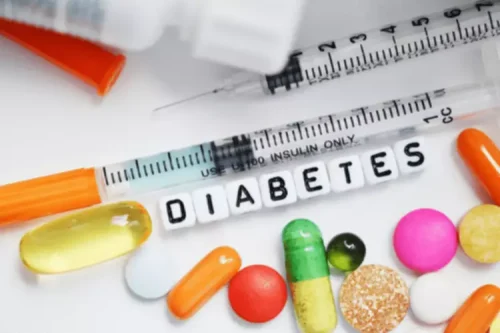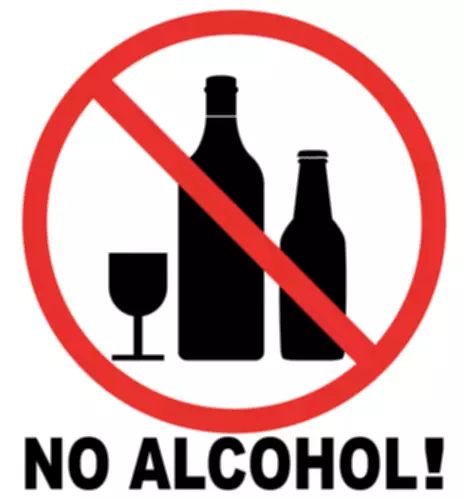
This results in a combination of brain-centered compulsion and physical need for the addicting substances in the body. When trying to understand why a person underwent a relapse cycle, it is essential to know the triggers that caused it. Identifying the triggers and finding ways to solve them can be helpful to avoid future relapse cycles. NATC also has on-site medical detox to help with withdrawal symptoms in a safe and as comfortable as possible.
The Role of Professional Support and Aftercare in Recovery
After an individual abuses drugs or takes prescription medications for a while, the substance could lead to brain changes that cause tolerance. That means that the substance doesn’t produce the same results physically or mentally causing the user to want to reach a high by taking higher volumes of the substance. The genes people are born with contribute to about half of a person’s risk for addiction.
Learning Center
- When this mindset persists, the slip-up can quickly become a full-blown relapse in which the obsessive and uncontrollable thoughts of using perpetuate the cycle of use.
- For someone who is at high risk of developing an addiction, sometimes all it takes is one try of a substance to start the addiction cycle.
- During this stage, the person may begin to justify their use as a way to deal with life’s challenges.
- Ongoing recovery from active drug addiction refers to the process and commitment to maintaining a healthy, substance-free lifestyle after overcoming your addiction.
While the journey is complex and distinct for everyone, knowing what to expect at each stage can provide a roadmap to successful recovery. Continuous support, effective coping strategies, and professional guidance can create the foundation for a healthier, addiction-free life. This therapeutic approach helps individuals identify and challenge negative thought patterns that may lead to substance use. By providing coping mechanisms, cognitive therapy enables them to reframe their thoughts, making it easier to resist cravings during triggering situations. Common techniques include behavioral modifications and developing problem-solving skills, which can significantly enhance resilience against relapse.
The Power of Support
- The support group message is generally that addiction is an ongoing disorder with a high risk of relapse.
- Repeated visits to the emergency room due to drug-related complications are a glaring red flag for drug abuse.
- Education on addiction and the risks of substance use can encourage people to not take substances in the first place.
- Addiction recovery is a multifaceted journey that requires understanding, effort, and support.
- This urge is a fundamental element of addiction, frequently experienced by individuals dependent on substances.
- Understanding these stages is crucial for early intervention and effective treatment.
Despite the common belief that there are only casual users and full-blown addicts, addiction is a brain disease that occurs in stages. Each stage of addiction involves complex interactions between brain circuits https://ecosoberhouse.com/ and behaviors. The Life Course Perspective demonstrates that recovery is affected by age and other life stages. Understanding these differences can help tailor interventions effectively. As individuals move into the contemplation stage, they begin to realize that their substance use may be problematic.
Although each person is different, they all face the same problems, fears, and dangers. To an addict knowing that they are not alone is an incredible boost when they feel that they are about to relapse. Knowing how to break the cycle of recovery and relapse also helps a user to understand what is happening and how to prevent it. Recognizing the problem, finding treatment, and building a support network can be life-changing.

Environmental Triggers
This is generally not the case with experimentation, where the financial impact is minimal.

Peer Support Network

You might notice your loved one going to bars more frequently or attending parties with drinking or drug use. As another example, maybe your spouse starts having a glass of wine every night after trying some at a restaurant. Someone who’s started using substances may show signs of inebriation, like stumbling when they walk, slurring their words, Halfway house or seeming spaced out.
It is essential to recognize that seeking support is not a sign of weakness but rather a courageous step toward maintaining sobriety. Connecting with peers, attending support group meetings, and engaging in therapy can help individuals regain control. Valley Spring Recovery Center offers comprehensive addiction how to break the addiction cycle and mental health treatment services.
- If you’re covered by any major insurance provider, your treatment will most likely be covered.
- Dr. Hoffman has successfully treated hundreds of patients battling addiction.
- They may start neglecting meetings and appointments, justifying their choices by believing their difficult time exempts them from seeking support.
- Negative social support in the form of interpersonal conflict and social pressure to use substances has been related to an increased risk for relapse.
Drugs like opioids disrupt other parts of the brain, such as the brain stem, which controls basic functions that are critical to life, including heart rate, breathing, and sleeping. Addiction to a substance can lead directly to structural changes within the brain that make controlling that addiction even more difficult. The brain is there to regulate your body’s basic functions, enable you to interpret and respond,, and create and form your behavior. In a nutshell, your brain is the best reflection of “you.” It is everything you think and feel, and who you are. It is worth noting that signs and symptoms of substance addiction can vary based on the actual substance used, and the method of use, eg.
Relapse Prevention in other areas
While the assumption with relapse is that it is a failure by the person to maintain their sobriety, the idea of relapsing is more complicated than that. The point at which a substance is being abused is defined based on the substance itself. For an illicit substance or a substance that has little to no legal or medical purpose such as heroin, it is considered substance abuse the first time someone uses it. Other substances can be obtained legally, either over the counter (alcohol, tobacco, etc) or via a doctor’s prescription.
